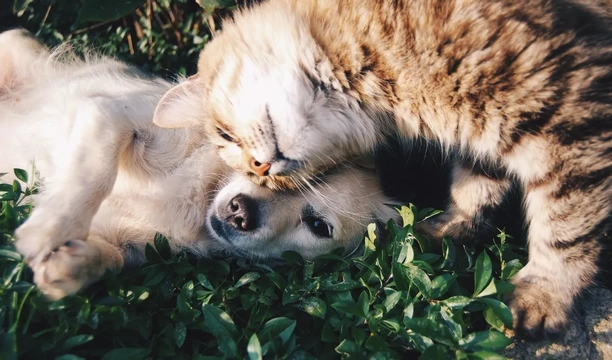
Vaccinating cats - your questions answered
Vaccination is the quickest and best way to protect your cat from preventable diseases. Most of these diseases are caused by viruses, and unfortunately, there is no direct treatment for most viruses that affect cats today. We all know that ‘prevention is better than cure’. Some of the diseases mentioned below are treatable with supportive medication, but others can be fatal. Vets frequently see serious diseases in unvaccinated kittens and cats of all ages. Many of these diseases can be prevented, or the clinical signs minimised, by a simple vaccination.
When should you vaccinate your cat?
It is advisable for all kittens to be given an initial course of two injections. These start from the age of 8-9 weeks old. The second vaccination is given 3-4 weeks later, when they are over 12 weeks of age. Depending upon disease prevalence in your area, your vet may recommend a third vaccination at 16 weeks or older but this is less common. We would advise that they should not go outside until at least seven days after their second vaccination as their immune protection will not be fully active. However, we also do not recommend letting them outside until they have been neutered. Read our article for more advice about protecting your kitten.
The primary vaccination course should be followed by an annual booster vaccination. Annual booster vaccinations are essential because the body’s immune response naturally declines over time. Some vaccinations need to be given every year, and others are given every 2-3 years, depending on the specific vaccine.
What should your cat be vaccinated for?
Vets most frequently use combination vaccines, which means that with one injection your cat is protected against several different diseases. The most commonly administered vaccination will help to protect your cat against:
- Feline panleukopenia virus: also known as feline parvovirus or feline infectious enteritis. A severe and frequently fatal cause of haemorrhagic gastroenteritis. Outbreaks of infection with this virus are common and a high proportion of affected cats can die.
- Feline herpes virus (FHV-1) and feline calicivirus (FCV): vaccines for feline herpes virus and feline calicivirus are always combined. These two viruses together are the main causes of upper respiratory tract infections in cats, cat flu.
- Feline leukaemia virus (FeLV): an important disease that is spread by fighting, mutual grooming, and sharing of food/water bowls and litter trays. Kittens may also acquire infections from their Mum before birth.
Cats affected by cat flu typically show sneezing, nasal discharge, conjunctivitis, eye discharge, and mouth ulcers. Clinical signs vary from mild to extremely severe. Occasionally other complications may develop, including viral pneumonia. With FHV-1, even after the initial signs subside, most cats will remain permanently infected with the virus, and some go on to develop recurrent eye infections or other signs. Follow this link to read more about cat flu.
FeLV is an important disease that causes a wide variety of problems in persistently infected cats. These include immunosuppression, anaemia (low numbers of red blood cells), and lymphoma (cancer of white blood cells). Unfortunately, most persistently infected cats will die as a result of their infection. We recommend that all cats who go outside are vaccinated against FeLV, as they may come across cats of unknown vaccination status, and are at risk of being exposed to FeLV. Neutering will also help to prevent fighting and therefore reduce the risk of spreading this disease.
Is it too late to vaccinate your cat?
It is never too late to start a vaccination programme. If you have an older cat, or your cat’s vaccination status has lapsed (exceeded the 365 day booster limit) we can advise you about how to get your cat protected. Elderly (geriatric) cats and kittens have a weaker immune system than adult cats, so it is especially important that they are fully vaccinated and that their boosters are kept up to date. In addition, most boarding catteries will not accept cats unless they have an up to date vaccination record due to the risk of unvaccinated cats sharing pathogens.
Still have questions?
Book a video appointment to have a chat with one of our vets.



